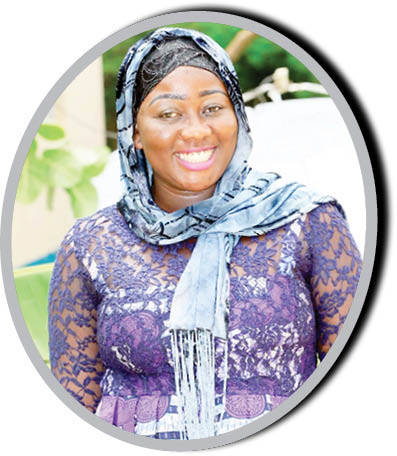‘Next generation of African leaders to focus on youth, local masses’
Matida Komma is the coordinator and co-founder of The Girls’ Agenda, a women right organization aimed at empowering young girls in The Gambia. She is also an alumnus of the 2016 Mandela Washington Fellowship. Matida who is in Nigeria for an internship programme at the African Network for the Prevention and Protection against Child abuse […]


Matida Komma is the coordinator and co-founder of The Girls’ Agenda, a women right organization aimed at empowering young girls in The Gambia. She is also an alumnus of the 2016 Mandela Washington Fellowship. Matida who is in Nigeria for an internship programme at the African Network for the Prevention and Protection against Child abuse and Neglect (ANPPCAN) in an interview with Daily Trust said fighting for girls’ rights is imperative to her.
She said: “We live in the communities where we have many school dropouts due to teenage pregnancies, early marriages or some other issues that might prompt them to drop out of school, so we started this movement targeted at both in school and out of school girls with these issues.”
Her advocacy started in 2011, when she joined forces with other young women who have all experienced some form of gender based violence in their lives and now are passionate about impacting and empowering young girls in the community.
The admin officer at the University of The Gambia said the need for the advocacy arose when issues of sexual abuse and exploitation kept on rising in communities around her.
“We have seen young girls who have either been victims of child marriage or harmful traditional practices such as FGM, how they have gone through some complications and how they are now developing and growing up” she said.
“Because we want to have a society where girls have a healthy and positive life away from these societal issues, we decided to come together to fight for the cause,” she added.
With resistance from the communities, and religious leaders at the start of the campaign, Matida said now there is acceptance to the cause as a result of frequent awareness.
“In the past, our advocacy has been centred in the conventional schools because it is an easy way route and you can easily explain and make them understand the scientific health problems with these issues, so there was a bit of reluctance when it comes to religious scholars’, traditional rulers but we are involving them. We have to bring all on board” she added.
With major donors like UNICEF, United Nations population fund, UNFPA in Gambia, the girl generation, the amplified change projects, amongst others, the girls’ rights activist said her organization through partnership with these agencies has so far trained over 1000 students on the scientific health problems associated with these issues through its Madrasa engagement.
On her experience at the Mandela Washington Fellowship, Matida said the fellowship was an avenue where Africans from sub-Saharan Africa meet in the United States to learn about the different African cultures and traditions we bring with us.
“We learnt from our African sisters and brothers what models work well in their advocacy and maybe borrowing from each other and trying them out in our own communities back home, so we exchanged ideas and learnt from each other.
“Especially when it comes to advocacy, how is advocacy done at the international level and narrowing it down in your own country context and seeing what works well,” Matida explained.
Matida is hopeful that the next generation of African leaders would be ones that will work not for their interest but the interest of the youth and the local masses.
“So I have hope with the new leaders coming up because the next generation of African leaders are coming up for the interest of youth, their communities and local masses that put them in power. I am sure with dedication, determination and encouragement we will get there,” the optimistic Matida said.
She further affirmed that the future for Africa is bright with the emerging young leaders coming up.
“I believe we will be able to tackle most of the problems we are faced with, because our problem is not about our people but the leadership that we have,” she said.
